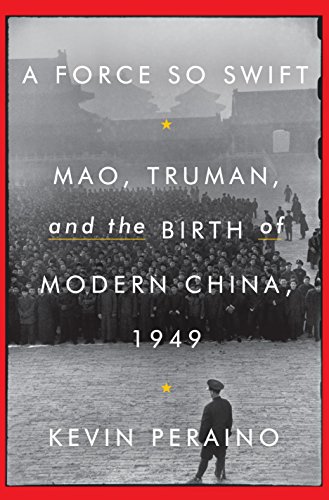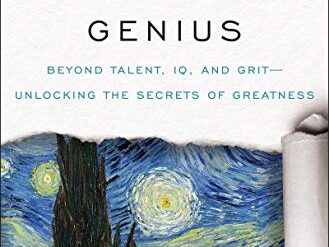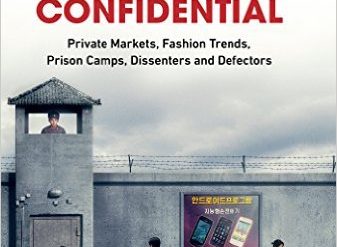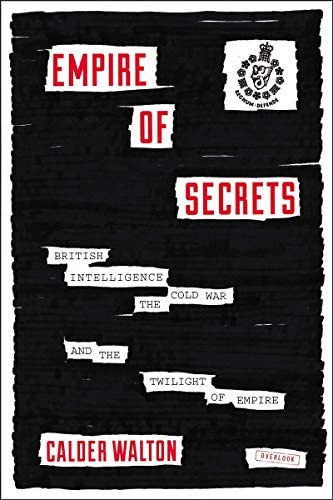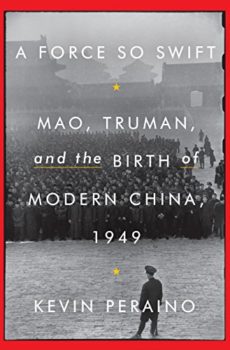
Estimated reading time: 5 minutes
Most history books paint the past in broad strokes, covering dozens or hundreds of years. Yet some of the most engaging works drill down into the events of a particular time or place. Kevin Peraino has brilliantly used that approach in A Force So Swift: Mao, Truman, and the Birth of Modern China, 1949. By focusing on the events of a single year, and concentrating on just ten key individual players in the drama, Peraino has brought back to life the complex circumstances surrounding one of the seminal events of the 20th Century. In Peraino’s hands, the emergence of the People’s Republic of China comes across as though it might have occurred yesterday.
And this is not dry history that can be forgotten. As Peraino notes, “Anxious Chinese officials see today’s American policy as a sequel to the containment strategy hatched in 1949.”
1949 was a eventful year in many ways. The year witnessed the growth of the Red Scare, the formation of NATO, the opening run of Death of a Salesman, the resignation and suicide of Defense Secretary James Forrestal, the formation of the Council of Europe, the trials of Alger Hiss, the publication of 1984, the first test of a nuclear bomb by the Soviet Union, and the formation of East and West Germany. Every one of these events figures in the background of Peraino’s chronicle of the year.
A Force So Swift: Mao, Truman, and the Birth of Modern China, 1949 by Kevin Peraino (2017) 410 pages ★★★★★
I was barely conscious of the wider world in 1949. After all, I was just eight years old. But every one of the ten individuals Peraino follows through that fateful year conjures up memories for me. Admittedly, my reading of history has a lot to do with that. But all ten of the people profiled in A Force So Swift were active for years after 1949, and I became familiar with them as the years went by. Peraino’s book helps me understand them better.
The cast of characters in A Force So Swift includes Mao Zedong, Harry Truman, Dean Acheson, Chiang Kai-Shek, Madame Chiang Kai-Shek, Josef Stalin, and Douglas MacArthur, every one of whom is familiar to anyone who reads history. Secretary of Defense Louis Johnson, Congressman Walter Judd (R-Minnesota), and British Foreign Secretary Ernest Bevin all played oversized roles in the events of 1949 but are less well known today. Johnson and Judd were central figures in the China Lobby that pressured Truman. Bevin engineered Britain’s recognition of Red China in defiance of US wishes.
Acheson and the China Lobby
The central drama illuminated in A Force So Swift is the clash between Acheson and the China Lobby led by Madame Chiang Kai-Shek for President Truman’s attention. The debate centered on whether the United States should continue to support the Nationalist forces led by Chiang Kai-Shek as they fell apart in the face of continuing Communist victories. Acheson was firmly opposed. Throughout the year, Truman leaned toward Acheson’s position, but saying no became progressively more difficult as the year unfolded. (“To court Mao or to confront him? Truman did not really want to do either.”)
The public relations campaign whipped up by the China Lobby was ferocious, and political pressure from Congress and the Pentagon was daunting. (“The congressional leadership was unanimously opposed to formally halting shipments” of money and arms to Chiang.) Even before Mao declared the formation of the People’s Republic on October 1, 1949, Acheson and Truman were convinced Red China was a fait accompli, and they hoped that by refraining from overt attacks on Mao’s forces that a split would eventually emerge between China and the Soviet Union. Their opponents refused to accept reality. History shows Truman and Acheson were correct.
“Ultimately the legacy of 1949,” Peraino writes, “in some cases, despite Acheson’s best efforts, had included thirty years of nonrecognition of Communist China, a decades-long U.S. commitment to Taiwan, and the wars in Korea and Vietnam.”
Kevin Peraino is an American journalist who has written for many leading publications. He is a visiting scholar at New York University. A Force So Swift is his second book.
For related reading
For my reviews of other books on US-China relations, see A revealing history of U.S.-China relations, Competition between the U.S. and China through the lens of geopolitics, and “Who lost China?” Nobody. Also, this is one of 30 insightful books about China.
For a fact-based novel that reveals the price paid at the grassroots by the Chinese Communist Revolution, see Daughters of Shandong by Eve J. Chung (How one family survived the Chinese Revolution).
This is one of the books I’ve included in my post, Gaining a global perspective on the world around us.
You may enjoy browsing through 20 top nonfiction books about history.
For more good books on the history of the US, see Top 20 popular books for understanding American history.
And you can always find my most popular reviews, and the most recent ones, on the Home Page.

